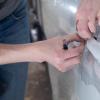8 Common Types of Repairs Your Car May Need
For some, a car is a symbol of luxury, while for others, it's primarily about convenience and practicality. Cars are complex machines, and just like any other piece of machinery, they demand regular maintenance and repairs to function at their best.
This is why it’s important to conduct routine maintenance and servicing to avoid unexpected roadside breakdowns and costly repairs. This also includes annual MOT checks. Some Northampton MOT centres are dedicated to providing your car with the right care, making sure that it meets all the necessary road safety and environmental standards. These professionals keep your vehicle in prime shape, reducing the risk of unexpected car repairs.
Besides this, it's equally important for you, as a car owner. to understand basic car repairs. By understanding common car issues, you will not only be able to recognise potential problems but also take proactive steps to address them.
Here are eight common types of car repairs that you should be aware of, empowering you to keep your vehicle running smoothly and safely on the road.
Let’s check them out!
1. Spark Plug Replacement
Despite its small size, spark plugs can be the source of a large number of car problems. The spark plug ignites the fuel to get your engine to start. However, in case of wear and tear, fouling or improper gaps, your engine's performance can suffer.
Spark plug replacements are usually quite simple. However, if you fail to conduct the installation properly or at the recommended time, your car may face problems like poor fuel efficiency, misfires and difficulty starting the car.
2. Optimal Brake System Functioning
It goes without saying that the maintenance of the brake system is essential for ensuring your safety on the road. Most accidents around the world are caused due to braking system failures. Brake system repair involves various things, such as the replacement of brake pads, which naturally tend to wear down with time.
In addition to brake pads, this type of repair may also include the replacement of essential components such as brake lines, brake discs, drums, and rotors. To ensure your safety and the proper functioning of your brakes, it's crucial to have high-quality replacement parts. In the UK, you have the advantage of easily accessing quality car parts online from trusted suppliers.
3. Oxygen Sensor Replacement
Oxygen sensors play an important role in monitoring the oxygen levels within the exhaust gases to enhance both engine performance and emissions control. When these sensors become faulty, and cannot accurately monitor the oxygen levels, it can lead to decreased fuel efficiency, reduced engine performance, and increased emissions.
While its easy to replace your oxygen sensor, modern vehicles are produced with specialised covers that require the expertise of a professional car technician for access.
4. Fuel Cap Tightening
Have you ever noticed the “check engine” light blinking on your dashboard? If yes, the reason could be a loose fuel cap. Although it may seem like a simple problem, leaving it unaddressed can have long-term consequences, affecting not only your car's performance but also your wallet.
When the fuel is not closed off or sealed properly, it can lead to increased fuel consumption, reducing your gas mileage. This means you'll find yourself refilling your tank more frequently, costing you more money than usual.
5. Tyre Repairs and Replacements
The condition of your tyres is another factor that plays a huge role in ensuring your safety. The consequences of neglecting tire care can be severe, as worn or damaged tires increase the risk of a dangerous blowout while driving, leading to accidents.
Not only that, it also enhances your driving experience. This is why you must repair and replace your tyres regularly.
6. Ignition System
The ignition system is one of the most important components of your vehicle, as it's responsible for starting the engine. The ignition system of your car comprises essential components like the battery and ignition itself. When any of these components malfunction, your car may not start or may stall while in transit.
The good news is that routine repair and timely replacement of components within the ignition system can prevent such issues. While it’s easy to replace some ignition components at home, it’s always best to consult a professional to ensure that the job is done just right.
7. Electrical System
In addition to batteries, your vehicle might require periodic repair or replacement of other electrical components, such as fuses and light bulbs. Fortunately, these tasks are typically DIY-friendly, provided you have the correct replacement fuses and light bulbs on hand.
8. Steering Wheel
Unbalanced tyres are one of the most common reasons that cause the steering wheel to vibrate. Additionally, low tyre pressure and worn-out treads on one or more tyres can result in imbalances between the car's wheels when they make contact with the road.
While it's possible to continue driving with a slightly shaking steering wheel, it's necessary to consult a skilled technician promptly. Neglecting this issue can lead to greater problems, such as uneven tyre wear, reduced handling performance, and compromised safety.
To Sum It Up
This sums up everything you need to know about common car repairs. If you understand cars, you likely take the DIY route when it comes to repairs and replacements. However, while some issues can be easily handled at home, others may need the precision of a skilled mechanic.
Therefore, it is best to assess the complexity of the problem, your proficiency, and the potential risks involved in the repair. This will help you decide whether to proceed with DIY repairs or seek professional assistance.
More to Read:
Previous Posts:



